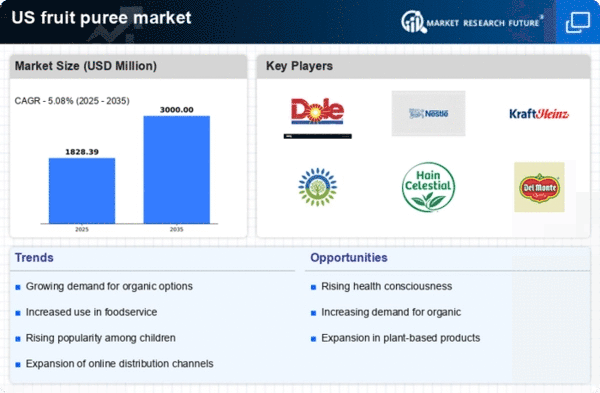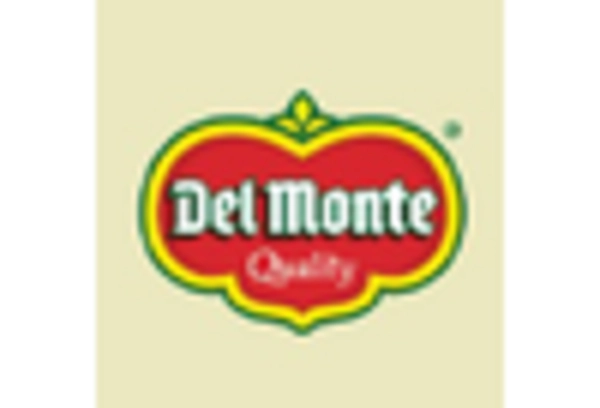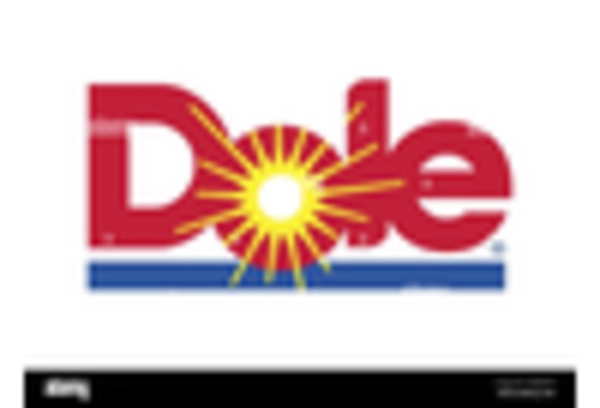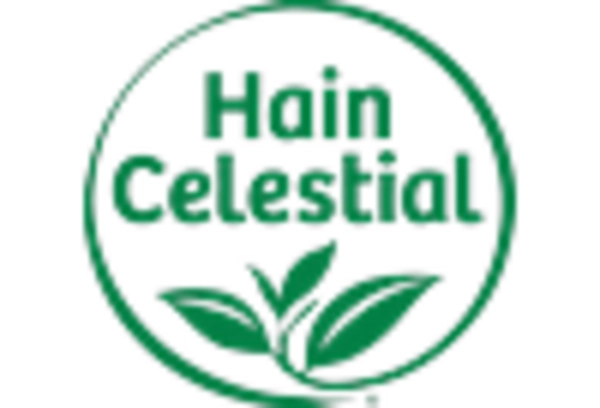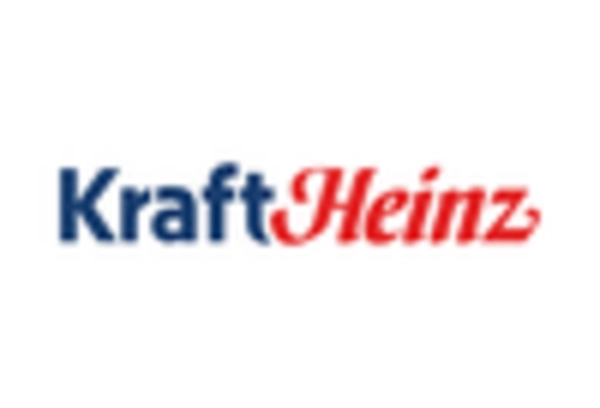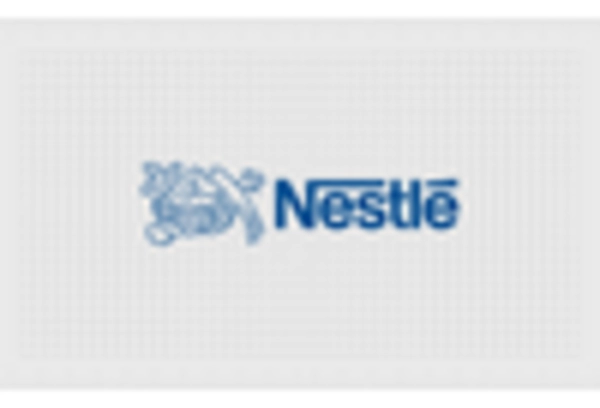Focus on Clean Label Products
The fruit puree market is increasingly aligning with the clean label movement, where consumers demand transparency in food labeling. This trend is prompting manufacturers to provide clear information about the sourcing and processing of their fruit purees. As consumers become more discerning about the ingredients in their food, the fruit puree market is adapting by emphasizing simplicity and authenticity in product formulations. This focus on clean labels is likely to drive growth, as brands that prioritize transparency may gain a competitive edge in a crowded marketplace. The shift towards clean label products reflects a broader consumer desire for trust and integrity in food sourcing.
Increased Use in Baby Food Products
The fruit puree market is witnessing a surge in the use of purees in baby food products. Parents are increasingly opting for fruit purees as a nutritious and convenient option for their infants. This trend is supported by the growing awareness of the importance of early nutrition, leading to a projected growth rate of 6% in the baby food segment that utilizes fruit purees. The fruit puree market is responding to this demand by developing specialized products that cater to the nutritional needs of infants, ensuring that they are both safe and healthy. This focus on quality and nutrition is likely to enhance the market's appeal among health-conscious parents.
Rising Demand for Natural Ingredients
The fruit puree market is experiencing a notable increase in demand for natural and organic ingredients. Consumers are becoming increasingly health-conscious, seeking products that are free from artificial additives and preservatives. This trend is reflected in the market, where the organic fruit puree segment is projected to grow at a CAGR of approximately 8% over the next five years. As a result, manufacturers are focusing on sourcing high-quality, natural fruits to meet consumer preferences. This shift towards natural ingredients is not only influencing product formulations but also driving innovation in the fruit puree market, as companies strive to create clean-label products that resonate with health-oriented consumers.
Growth in the Food and Beverage Sector
The expansion of the food and beverage sector is significantly impacting the fruit puree market. With the increasing popularity of smoothies, sauces, and desserts that incorporate fruit purees, the market is poised for growth. In 2025, the food and beverage industry is expected to reach a valuation of over $1 trillion, with fruit purees playing a crucial role in this expansion. This growth is driven by the rising consumer preference for convenient and ready-to-eat products, which often utilize fruit purees as key ingredients. Consequently, the fruit puree market is likely to benefit from this trend, as manufacturers adapt their offerings to align with evolving consumer demands.
Emergence of Innovative Flavors and Varieties
The fruit puree market is characterized by the emergence of innovative flavors and varieties that cater to diverse consumer preferences. Manufacturers are experimenting with unique fruit combinations and exotic flavors to differentiate their products in a competitive landscape. This trend is particularly evident in the beverage sector, where fruit purees are being used to create novel drinks that appeal to adventurous consumers. The fruit puree market is likely to see a rise in demand for these innovative offerings, as consumers seek new taste experiences. This diversification not only enhances product appeal but also contributes to the overall growth of the market.


